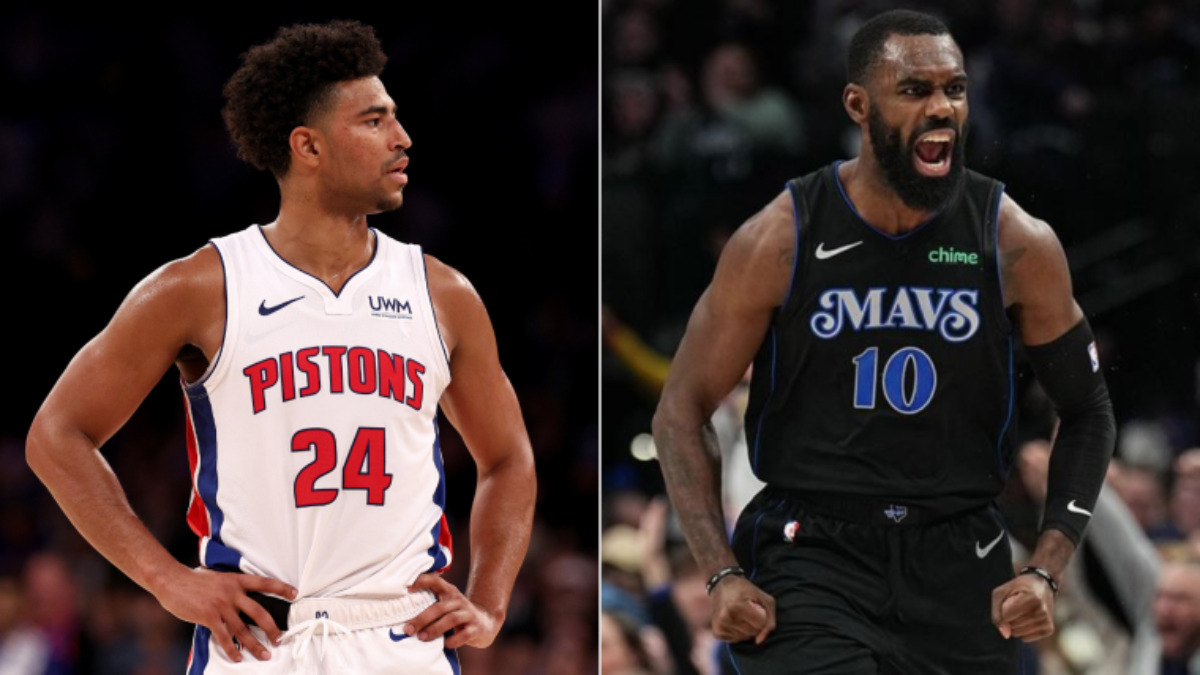The Mavericks decided to shake things up just before the free agency frenzy on Sunday, pulling off a crafty maneuver that could yield substantial returns in the future.
In a strategic move, Dallas has orchestrated a trade with Detroit, securing the services of the promising 3-and-D talent, Quentin Grimes. The deal, initially unveiled by ESPN’s Adrian Wojnarowski, sees the Mavericks sending Tim Hardaway Jr. along with some valuable draft assets to Detroit.
Let’s break down what this exchange means for each team.
Mavericks-Pistons trade details
Mavericks acquire:
- Quentin Grimes
Pistons acquire:
- Tim Hardaway Jr.
- 2025 second-round pick (via TOR)
- Two 2028 second-round picks
Mavericks trade grade
The acquisition of Quentin Grimes by the Mavericks just before free agency kicked off could prove to be a savvy move with significant potential payoffs.
Grimes, while not a household name, has established himself as a dependable spot starter for the Knicks, showcasing his defensive grit and solid shooting touch at age 24. His resilience was evident when he stepped up to defend stars like Jimmy Butler, even under challenging circumstances. With a career 3-point shooting average of 37.1%, he adds a valuable outside threat that Dallas sorely missed in their recent Finals bout against the Celtics.
Dallas has long sought players of Grimes’ caliber—strong defenders who can knock down threes—to complement the brilliance of Luka Doncic. Derrick Jones Jr. filled this role adequately, but lacked the consistent shooting prowess Grimes brings, forcing opponents to adjust their defensive strategies against Doncic in crunch playoff moments.
Financially, Grimes comes at a manageable $4.3 million salary for the upcoming season and will enter restricted free agency thereafter. This flexibility is crucial, as it prevents the Mavericks from losing valuable assets like Jones to higher bidding in free agency. By shedding Tim Hardaway Jr.’s $16.2 million expiring contract in the trade, Dallas also opens up a substantial $13 million mid-level exception, enhancing their ability to pursue Jones or other coveted free agents aggressively.
Critically, this move addresses a pressing need to upgrade the roster without relying on unreliable postseason performances from players like Hardaway. It underscores the Mavericks’ strategic use of their resources to fortify their playoff readiness.
Grade: A
Pistons trade grade
Tim Hardaway Jr.’s move to the Pistons marks a strategic shift for Detroit, leveraging their significant cap space to absorb his expiring contract from the Mavericks. With over $60 million in cap room, the Pistons recognized that attracting marquee names like Paul George or LeBron James wasn’t feasible, opting instead to capitalize on their financial flexibility.
In exchange for taking on Hardaway’s contract, Detroit negotiated a favorable deal, securing three second-round picks from Dallas. This transaction aligns with the new philosophy introduced by GM Trajan Langdon, contrasting with previous win-now strategies and questionable signings of young, unproven players under former GM Troy Weaver. Langdon’s approach emphasizes patience and prudent financial management, laying a foundation for long-term success.
Looking ahead, the Pistons aren’t resting on their laurels. With more than $50 million still available under the salary cap, they intend to continue absorbing cumbersome contracts to facilitate intricate trades, particularly advantageous under the NBA’s new apron rules. This approach mirrors successful rebuild models seen in teams like the Thunder, prioritizing the accumulation of draft assets to bolster their roster for the future.
Overall, Detroit’s move to acquire Hardaway Jr. represents a well-calculated step towards building a competitive team through smart cap management and strategic asset accumulation.
Grade: A


